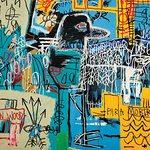
The Strokes The New Abnormal
(Cult / RCA)
It's been almost two decades since a quintet of international boarding school kids in New York came out with their first record. Those kids were Julian Casablancas, Nikolai Fraiture, Albert Hammond Jr., Fabrizio Moretti, and Nick Valensi; the band was The Strokes; and the album, Is This It, lived up to the hyperbolic praise it received on release. It was 2001, and critics wondered aloud if The Strokes could save rock and roll from the dregs of grunge. The praise echoed that given a Britpop group five years earlier, supposed Beatles-thronebreakers Oasis. But unlike the hyped-yet-hollow Oasis, The Strokes actually had substance, and were instrumental in revitalizing rock music with their Lou Reed grit, CBGB-era sludge, and enough swagger to make rock look cool again via fashion-focused, Euro-Brazilian-lineage, and cigarettes dangling beneath visibly greasy hair.
While The Strokes never released another album as tuneful, raw, and perfect as Is This It, they continued making serviceable music built around a propulsive rhythm section, fuzzy Stratocasters, and Casablancas' signature pinched, throaty rasp. Over the years, though, their sound has arguably lost its way by becoming increasingly polished in the production studio and being represented by more gentle and reflective tunes. In this manner, their early-career rawness has been peeled away, revealing The Strokes to be wily creators of pop music; yet by pop, I mean an output that sounds familiar and derivative, the kind of songs composed after ingesting ten thousand hours of FM radio, then making your own approximation.
On their latest album, The New Abnormal, The Strokes have mirrored the career of Beck, offering a mimetic approximation of music they think people want, instead of music generated from their raw, inner demons or whatever fueled them on Is This It. Not surprisingly, the band sounds like musicians seeking the lowest common denominator in pop music: a number one hit. Predictably, we hear echoes of Beck. For example, on Eternal Summer, a funk-phased, chant-backed, and most telling of all, falsetto-crooned ballad The Strokes are, seriously, indistinguishable from Beck's work on the disappointing Hyperspace—minus Beck's meticulous attention to sonics and goofy sense of humor. Then there's Bad Decisions, a clone (or straight up rip-off) of Modern English's I Melt With You, except for the chorus, which should've kept copying Modern English. Other riffs and melodies feel ripped off from New Order or Echo & the Bunnymen, but unlike those 80s bands, don't pop.
The Strokes were already dangerously close to being seen as privileged nepotists when they blew up. In spite of that, or perhaps to defy their preppy background, they made music that was raw, cutting, and subversive. I mean, not only did a song get censored off their first album, but their record cover was too indecent for America. They didn't give a shit, and their attitude shone a light for a new wave of New York punk, showing a way beyond pity and irony-laced grunge to a sound meant to be danced and sung along to. Everyone paid attention. In the decade that followed their first album, we'd hear them in new-new-wave bands like Interpol and stadium rockers The Killers. Sadly, if MGMT was a band that only exists because of The Strokes, now The Strokes are relegated to sounding like MGMT. Talk about a frustrating Xerox complex.
The band making vital, subversive, energized music right now is Car Seat Headrest, who almost sounds like he's channeling a young Casablancas. I'm grateful for that, because we still need The Strokes, just not The Strokes as they are now—a geriatric, worse yet, lazy palimpsest of vigorous, divisive youth. They used to stick up their middle finger, give us a coolness to aspire to, like a modern-day Velvet Underground, but after peaking so early, they've sunk, just like the other bands said to rescue us who are now reserved a special place in purgatory; Oasis, Weezer, Guns N Roses, and yes, even Lou Reed.
22 April, 2020 - 05:58 — Kirk Sever